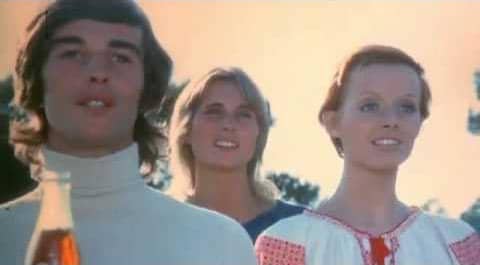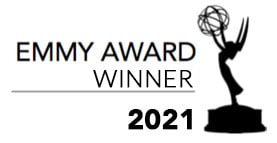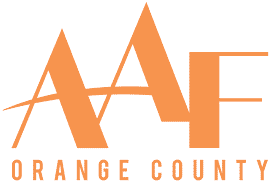


Quick – can you hum the theme music from Jeopardy? How about the music from Star Wars when the Storm Troopers are marching? The tv show Hawaii Five-O? How about Friends?
Music can mean a lot more to you than you realize. Music is all around us, working its magic. We may not even notice it on a conscious level, but it's there, working "behind the scenes" to create a powerful impression.
So choosing the right music for your message can make all the difference. And when it comes to your advertising, especially your video content, not using music can be like tying one hand behind your back.

You can order a juicy cut of steak or freshly picked salad greens, but without seasoning or dressing, all that flavor falls flat. No matter how well-crafted your script or how stunning your images are, the right kind of music will make your message more powerful and more memorable. When you add music to video, you're improving your odds of an excellent ROI on your marketing.
If you want someone to remember something, add a tune to it. A mnemonic device is designed to assist memory, especially as it applies to a tagline in advertising. Adding music to a line of copy can become a mnemonic. Done properly, the tagline becomes inextricably connected to the music and vice versa. Jeopardy and its distinctive theme music are forever united.
We get it – there's no time. Working on your ads and video content can be exhausting. There's always more to do than you have time for. Getting the words and images right is number one, and music can become an afterthought.
Please don't make this mistake. There isn't a television commercial, a video, or a movie worth remembering that isn't energized by the music. Follow along, and we'll show you a few ways you can make it memorable.
Adding the song One by U2 to your ad would be great, but you better be ready to sell the house and your whole neighborhood. If you plan to use your content across multiple platforms, it's good to double and triple-check to see if you have the right to do so without extra costs.
When you add audio to video, copyright infringement is a serious risk. It's too important to leave to the last minute. There's nothing more annoying than having to unsell a piece of music when someone has already fallen in love with it. Sort this out ahead of time. Then, check out your options using a royalty-free music catalog or audio library.
The bad news is even finding the most amazing music to pair with your perfect images and words may not be right for your brand. The good news is you'll be able to tell as soon as you hear it. If it makes you cringe, move on to something else. There's a visceral reaction you get when the music isn't right.
Working on your marketing can become a sort of creative commons with the rest of your team. Just be sure you discuss which style of music you believe matches your brand at length. Don't assume everyone will know ahead of time. Be prepared for a spirited debate.
The right sound can bring structure to your work. And the right emotion for your message needs to peak at the right time. It's more than just a matter of keeping pace with the message. Your music can shine a bright spotlight on the most essential points you want to make. Be sure you don't overuse this technique. If you highlight too many things, no one thing will stand above the rest.
This isn't a music problem. This is a problem with your strategy and your message prioritization. No matter how good your video clips or video effects are, be sure to edit videos with brevity.
Don't fall in love with a piece of background music before you know exactly where your story is going. It's essential to match the tone of your music to the tone of your narrative. No one notices if you do an average match. Everyone will notice if you do a good one, and it's the same with a bad match. The same goes for sound effects and music tracks. Always keep your story front and center.
Sometimes a little bit of music does a lot. Ad pacing is one of the benefits available to you when you find background music that works. Think about whether you need music as background for the entire content or whether a good bookend would be better. A short and sweet piece of music at the beginning and one at the end may be the best solution for you and the content.
This will always save you time and money. However, if you have a limited budget, finding the best music may take some extra time. Setting the parameters at the beginning gives you your best chance to get it right for the right price. Also, be sure to look around when it comes time to search for content. You might find some videos for free. Just be sure to check out the rights.
Those words can be scary if you haven't done your homework. There are four types of licenses used for music. Make sure you have the right one for what you're planning to do.
Free License – This covers music in the public domain. It can also cover music that has a creative commons license. Be sure to double-check.
Limited License – This describes a royalty-free song with very specific usage limits. For example, you might be able to use the song for a non-commercial purpose, like a training video. Make sure this doesn't somehow end up in your advertising, or you'll have to pay for it.
Paid License – A song you pay for in a specific application for a specific number of times or duration. Again, the devil will be in the details, so make sure you are ready with all possible uses in mind BEFORE you negotiate the terms. Being forced to pay after the fact for something someone forgot to mention can be very expensive.
Rights Managed – Again, this will be all about the details. How will the song be used, how much it will be used, and how many people will be exposed to it are examples of some terms that can be agreed to and followed.
When you get everything right, it's all worth it. In 1971, Coca-Cola aired its famous tv commercial, and many of us connect that song with the brand still to this day.







